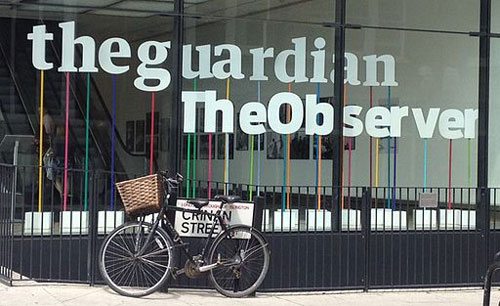
The Guardian, the British newspaper that has dramatically heightened its international profile over the past few years, is following the lead of other revenue-challenged newspapers and diving into soliciting philanthropic support.
The New York Times and Digiday report that the paper, which won a Pulitzer just three years ago for its coverage of the Snowden leaks, has established a nonprofit in the United States, theguardian.org, to focus on seeking support from institutional and corporate foundations and think tanks. The idea is to get financial help to report on big policy issues such as human rights and climate change.
The Guardian had already been receiving funding for some of its reporting but Rachel White, the president of theguardian.org, said the new “charitable status would make it easier for more organizations and private individuals, who might otherwise feel conflicted about contributing to a for-profit newsroom, to donate,” according to the Times.
Sign up for our free newsletters
Subscribe to NPQ's newsletters to have our top stories delivered directly to your inbox.
By signing up, you agree to our privacy policy and terms of use, and to receive messages from NPQ and our partners.
This is not as big a departure as it may seem. The Guardian is owned by the Scott Trust, which is set up to have the profits not distributed to shareholders but rather ploughed back into the journalism. It’s what allows the paper to take reporting risks. Thus, the Guardian’s base is more nonprofit than for-profit anyway.
Having received its tax-exempt status in October of last year, theguardian.org has been setting up partnerships since December. Since then, it’s has raised more than $1 million from the Skoll Foundation, Humanity United, and the Conrad N. Hilton Foundation. Overall, it has raised $6 million in multi-year commitments.
White told the Times that fundraising has been helped by philanthropy’s increasing worries about the future of the news industry at a time when the news business is in upheaval and has faced public attacks. The Guardian does not have a paywall on its website, but asks readers at the end of every story to subscribe or make a financial contribution.
The Guardian itself has already received support from the Bill & Melinda Gates Foundation, the Ford Foundation, and the Rockefeller Foundation to help fund its reporting. Philanthropy now makes up only a small portion of the company’s revenues of $276 million, and it is not exactly new or undistinguished as a nonprofit endeavor.—Larry Kaplan













